Loss
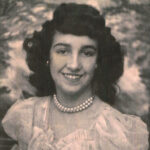
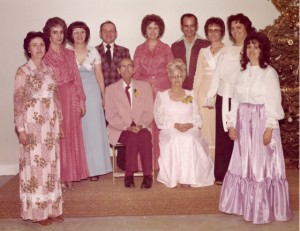 As the years go by, the number of aunts and uncles I have who are still living dwindles down. We don’t lose one or more every year, but they are slowly leaving us, and even years after they are in Heaven, I still think of them often, and especially on their birthdays. when I was a little girl, I somehow thought my Aunt Virginia Beadle was a tall (but not too tall) slim lady…and she was slim anyway. I suppose my own shortness made her seem taller, and I don’t know how tall she was in her tall days, but I know that in her latter years, she just got more and more tiny. Every time I saw her, I was amazed at how much more tiny and frail looking she
As the years go by, the number of aunts and uncles I have who are still living dwindles down. We don’t lose one or more every year, but they are slowly leaving us, and even years after they are in Heaven, I still think of them often, and especially on their birthdays. when I was a little girl, I somehow thought my Aunt Virginia Beadle was a tall (but not too tall) slim lady…and she was slim anyway. I suppose my own shortness made her seem taller, and I don’t know how tall she was in her tall days, but I know that in her latter years, she just got more and more tiny. Every time I saw her, I was amazed at how much more tiny and frail looking she 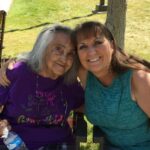 was, but she wasn’t sickly, and that was a good thing. Unfortunately, she was just getting older, and that was a bad thing.
was, but she wasn’t sickly, and that was a good thing. Unfortunately, she was just getting older, and that was a bad thing.
Aunt Virginia lived a full life, and she did so many things in her life. She worked much of her adult life…first for the telephone company, and then for the State of Wyoming. She was mom to three sons and two daughters. Her adopted son, Forest went to Heaven on July 3, 2005; and a daughter, Christy went to Heaven the day after her birth on November 20, 1967. Those were very sad events for Aunt Virginia, and I know that she is really enjoying her time with the children who went home ahead of her…as well as her husband, Uncle Bill Beadle who went home ahead of her too. Aunt Virginia was extremely saddened by every loss, but strong woman that she was, she persevered. That made her an inspiration to many…especially her children…and many of her nieces and nephews.
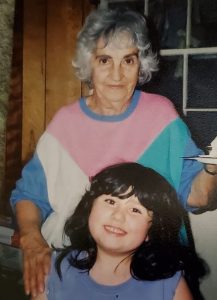
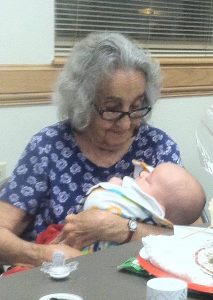 The Byer girls were a beautiful bunch, and Aunt Virginia was no exception. I always thought of her as very sophisticated. Maybe it was because of how she dressed for the jobs she held. In those days, dresses were the norm…especially at work, and Aunt Virginia always looked stunning. I remember looking at her as a little girl and thinking how pretty she was. I think I always wanted to “dress up” like she did. She was very pretty, but more important than her beauty, was her sweet disposition. She was always thoughtful and kind, and that endeared her to many people…both at work and in her daily life. She was soft-spoken and kind, and we all loved her. Today would have been Aunt Virginia’s 92nd birthday. Happy birthday in Heaven, Aunt Virginia. We love and miss you very much.
The Byer girls were a beautiful bunch, and Aunt Virginia was no exception. I always thought of her as very sophisticated. Maybe it was because of how she dressed for the jobs she held. In those days, dresses were the norm…especially at work, and Aunt Virginia always looked stunning. I remember looking at her as a little girl and thinking how pretty she was. I think I always wanted to “dress up” like she did. She was very pretty, but more important than her beauty, was her sweet disposition. She was always thoughtful and kind, and that endeared her to many people…both at work and in her daily life. She was soft-spoken and kind, and we all loved her. Today would have been Aunt Virginia’s 92nd birthday. Happy birthday in Heaven, Aunt Virginia. We love and miss you very much.
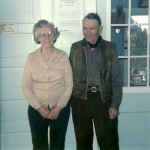
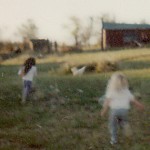 Bob’s step-grandfather, Walt Hein was quite a character. He always tried to seem gruff, and maybe he was in his younger days, but by the time I met him, and he became my official “Pitch” partner, I could tell that all that gruffness was just for show. After a year or so, he didn’t even continue on with the “show” of gruffness. He was an old softie, and he knew it. I first met Walt, as he was called, but I always called him Grandpa, in 1975, so he was 69 years old by that time, and pretty set in his ways, but I didn’t let that stop me from liking him right away. I never was a big card player, other than Cribbage with my Uncle Bill Spencer that is, but I would play “Pitch” with Grandpa. We were both ruthless players, and most people didn’t stand a chance against us.
Bob’s step-grandfather, Walt Hein was quite a character. He always tried to seem gruff, and maybe he was in his younger days, but by the time I met him, and he became my official “Pitch” partner, I could tell that all that gruffness was just for show. After a year or so, he didn’t even continue on with the “show” of gruffness. He was an old softie, and he knew it. I first met Walt, as he was called, but I always called him Grandpa, in 1975, so he was 69 years old by that time, and pretty set in his ways, but I didn’t let that stop me from liking him right away. I never was a big card player, other than Cribbage with my Uncle Bill Spencer that is, but I would play “Pitch” with Grandpa. We were both ruthless players, and most people didn’t stand a chance against us.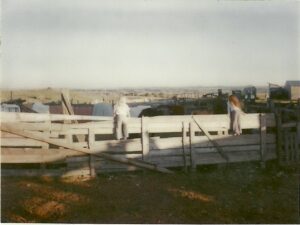
He was also a softie when it came to our girls, Corrie Petersen and Amy Royce. He let the chase the chicken on the ranch and took they for rides on the horses. They loved to do both, and they loved Grandpa. He had a “swimming pool” of sorts out in the yard, and he was always willing to fill up that old bathtub so the girls could cool off and have a little fun. Grandpa was an “old softie” when it came to my girls too, and all of his other grandchildren too.
Grandpa was famous for heading off to one of the outbuildings on the ranch for his afternoon nap. That usually lasted an hour or so, and then he was totally re-energized and ready to go play cards again. If Grandpa could have had his way, this would be the agenda for our visits there. He really hated it when we went into town to visit other relatives in town. He 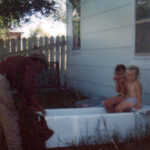
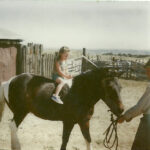 wanted to really maximize the card playing time. I felt bad when we needed to go. Not because I wanted to visit other family members, but because he almost seemed heartbroken. I knew that he didn’t get to play cards much when we weren’t there for a visit, so he really wanted to play all day, but Grandma had other things to do, so sometimes we just had to stop. Poor Grandpa. That ruined his whole day. Maybe that was why he took the naps. I miss those days. Today is the 115th anniversary of the birth of a sweet old man. Happy birthday in Heaven, Grandpa Hein. We love and miss you very much.
wanted to really maximize the card playing time. I felt bad when we needed to go. Not because I wanted to visit other family members, but because he almost seemed heartbroken. I knew that he didn’t get to play cards much when we weren’t there for a visit, so he really wanted to play all day, but Grandma had other things to do, so sometimes we just had to stop. Poor Grandpa. That ruined his whole day. Maybe that was why he took the naps. I miss those days. Today is the 115th anniversary of the birth of a sweet old man. Happy birthday in Heaven, Grandpa Hein. We love and miss you very much.
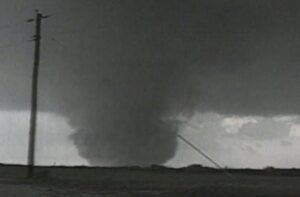
 Tornadoes can happen anywhere, but there are areas of the country that are more prone to tornadoes. Nevertheless, the F-5 tornado is extremely rare, and thankfully so, but when one hits a town, it is…devastating!! On May 27, 1997, an F-5 tornado his Jarrell, Texas, killing 27 people and destroying dozens of homes. That damage and loss of life was horrific, but it was what happened afterward that was truly amazing.
Tornadoes can happen anywhere, but there are areas of the country that are more prone to tornadoes. Nevertheless, the F-5 tornado is extremely rare, and thankfully so, but when one hits a town, it is…devastating!! On May 27, 1997, an F-5 tornado his Jarrell, Texas, killing 27 people and destroying dozens of homes. That damage and loss of life was horrific, but it was what happened afterward that was truly amazing.
Once the news of the devastating tornado broke, people from near and far started showing up to do whatever it took to help out. In fact, people showed up by the busloads. The people were there to help with the cleanup, but that wasn’t really all they were there for. Upon arrival, they found that there was a great need for blood, because many who were critically injured needed blood and without a second thought, they showed up at blood banks and hospitals, ready to donate the critical blood that was needed. Besides giving blood, volunteers helped pick up debris and rubble. The work was hard, but those who arrived in Jarrell wanted to show their support to the residents of the devastated town.
The town of Jarrell, population around 400 at the time of the tornado lost entire families, like the Igo family of five, the Moehring family of four, the Smith family of three, and the Gower family of 2. but since the tornado, the town has really been growing. These days, Jarrell has more than 1750 people in residence. Really, that goes to show that these people were not going to give up. They were going to rebuild their lives and their town. Twenty-five years can make a huge difference in a town’s history. People can forget what happened so long ago, but if the survivors never forget, they can pass the history of the tragedy on to the future generations.
I’m sure that over the years, there were those who couldn’t bear to stay there any longer. That happens too. Not everyone is able to move on from the past, and sometimes people just don’t want to stay where there has been so much loss. There is really no right or wrong thing to do, it is simply what the people who went through 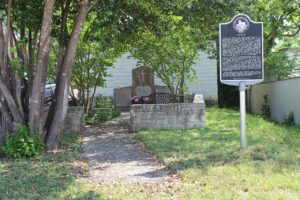
 the tragedy need to do in order to heal. As for the town, it has been rebuilt and it is growing all the time. I think that Jarrell will thrive again, and maybe even become a larger city in time. The fact that the town has the ability to heal and move on is due in large part to the help of the amazing people came to the rescue 25 years ago in Jarrell’s hour of need.
the tragedy need to do in order to heal. As for the town, it has been rebuilt and it is growing all the time. I think that Jarrell will thrive again, and maybe even become a larger city in time. The fact that the town has the ability to heal and move on is due in large part to the help of the amazing people came to the rescue 25 years ago in Jarrell’s hour of need.
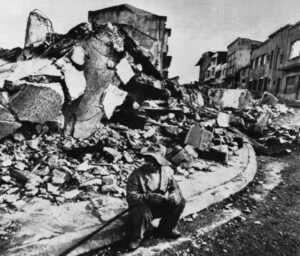
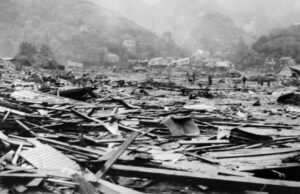 I would never have considered that an earthquake in Chili could affect Hawaii, which is 6,593 miles away, but on May 23, 1960, that seemingly huge distance suddenly became very small. When a 9.5 magnitude earthquake hit Chili on May 22, 1960, thousands of people lost their lives, and a giant tsunami was triggered. By the next day, that tsunami had traveled across the Pacific Ocean and killed an additional 61 people in Hilo, Hawaii. That distance and the amount of devastation seems incredible to me.
I would never have considered that an earthquake in Chili could affect Hawaii, which is 6,593 miles away, but on May 23, 1960, that seemingly huge distance suddenly became very small. When a 9.5 magnitude earthquake hit Chili on May 22, 1960, thousands of people lost their lives, and a giant tsunami was triggered. By the next day, that tsunami had traveled across the Pacific Ocean and killed an additional 61 people in Hilo, Hawaii. That distance and the amount of devastation seems incredible to me.
The earthquake, which involved a severe plate shift, caused a large displacement of water just off the coast of southern Chile at 3:11pm. The resulting wave, traveling at speeds in excess of 400 miles per hour, moved west and north. The damage to the west coast of the United States was estimated at $1 million, but there were no deaths there.
In 1948, the Pacific Tsunami Warning System was established in response to another deadly tsunami. It worked properly and warnings were issued to Hawaiians six hours before the deadly wave was expected to arrive. Unfortunately, some people ignored the warnings, as always seems to happen. Some other people actually headed to the coast in order to view the wave…like the warning was actually an announcement of a coming attraction. The tsunami arrived only a minute after it was predicted, and it absolutely destroyed Hilo Bay on the island of Hawaii.
People really don’t fully understand just how much destructive power water has, until they see it in action. When the waves hit Hilo Bay, they were thirty-five-feet high. They were so strong that they bent parking meters to the ground and wiped away most of the buildings. When the wave hit a 10-ton tractor, it was swept out to sea like it was made of Styrofoam. you would think that boulders would be sturdy enough to hold back the waves, but the 20-ton boulders that made up the seawall were easily moved 500 feet. The 61 people who lost their lives were in Hilo…the hardest hit area of the island chain.
With all of that destruction, you might be inclined to think that the waves would have lost power, and to a degree, I suppose they did. Nevertheless, the tsunami continued to race further west across the Pacific. Even given a ten-thousand-mile distance from the earthquake’s epicenter, Japan still wasn’t able to provide enough warning time to get the people out of harm’s way. The wave hit Japan at about 6:00pm, more than a full day after the earthquake. The tsunami struck the Japanese islands of Honshu and Hokkaido. The wave’s power was still enough to crushing 180 people, and to leave 50,000 more homeless. In Japan, it caused $400 million in 
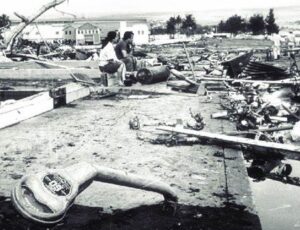 damages. With everything destroyed by this one earthquake and the subsequent tsunami, you would think that people would finally learn to stay away from the shore during a tsunami warning, but every year people lose their lives because they decided to cross paths with waves…be it from tsunamis, hurricanes, and other floods. Water is a force to be reckoned with. It should be considered very dangerous.
damages. With everything destroyed by this one earthquake and the subsequent tsunami, you would think that people would finally learn to stay away from the shore during a tsunami warning, but every year people lose their lives because they decided to cross paths with waves…be it from tsunamis, hurricanes, and other floods. Water is a force to be reckoned with. It should be considered very dangerous.
 As another year has come and gone, I find myself again saddened that our cousin, Larry Hein is no longer with us. How could it be that he has been in Heaven now for almost a year and a half? Larry was a wonderful son, brother, and dad. He was also a successful businessman in Forsyth, Montana, and many people in town were helped by his mechanical ability and his towing business. Life wasn’t always easy for Larry. He lost his wife to an auto accident and was left to raise his children alone. He did a good job with that, and by the time he went to Heaven, his youngest child, Destiny was almost grown, and his son, Dalton was a grown man. I know they were so sad that he was no longer with them, but they were also grateful that they had him for most of their childhood years.
As another year has come and gone, I find myself again saddened that our cousin, Larry Hein is no longer with us. How could it be that he has been in Heaven now for almost a year and a half? Larry was a wonderful son, brother, and dad. He was also a successful businessman in Forsyth, Montana, and many people in town were helped by his mechanical ability and his towing business. Life wasn’t always easy for Larry. He lost his wife to an auto accident and was left to raise his children alone. He did a good job with that, and by the time he went to Heaven, his youngest child, Destiny was almost grown, and his son, Dalton was a grown man. I know they were so sad that he was no longer with them, but they were also grateful that they had him for most of their childhood years.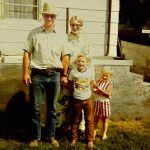
I remember Larry as a young boy, because I married his cousin, Bob when Larry was just six years old. He was a good boy, and when my own children, Corrie Petersen and Amy Royce came along, Larry would go out to the playhouse on Grandma and Grandpa Hein’s house, and even though he was a boy, he was willing to playhouse with the girls, because they needed a “daddy” for the “family” game they were playing. While I’m sure Larry was quite bored, he was a good sport, and took it all in stride, even to caring for the baby dolls they were using for the kids.
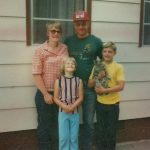
Larry loved being out at Grandma Hein’s house, as we all did. There was always something to do and everyone had a great time. Grandma and Grandpa made life a big game…even if the kids were actually helping with the chores. And, they learned responsibility and good values, because they really did help around the ranch. They also got to ride the horses and help with the other animals that were being raised. Larry was a good help, as were the other kids, and they were all a blessing to Grandma and Grandpa Hein. Tody would have been Larry’s 53rd birthday. Happy birthday in Heaven, Larry. I know you are all celebrating there. We love and miss you very much.
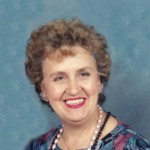
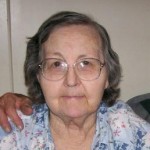 Each year I find myself more and more surprised at just how many years I have been without my moms. My mom, Collene Spencer left us February 22, 2015 and my mother-in-law, Joann Schulenberg left us January 4, 2018. So many Motherless Mother’s Days have come and gone, and there will be so many more to follow, but I know that my mom and my mother-in-law are in my future, not my past. They are waiting in Heaven for the coming arrival of all of their beloved children, grandchildren, great grandchildren, and many more greats to come.
Each year I find myself more and more surprised at just how many years I have been without my moms. My mom, Collene Spencer left us February 22, 2015 and my mother-in-law, Joann Schulenberg left us January 4, 2018. So many Motherless Mother’s Days have come and gone, and there will be so many more to follow, but I know that my mom and my mother-in-law are in my future, not my past. They are waiting in Heaven for the coming arrival of all of their beloved children, grandchildren, great grandchildren, and many more greats to come.
Of course, it really isn’t a Motherless Mother’s Day because I am a mother, as are my sisters and sisters-in-law, my daughters, nieces, and my soon to be granddaughters-in-law. With all of these wonderful moms in my life, I 
 am never without someone to wish a happy Mother’s Day. And while I don’t have my moms with me this year, I know they are happy and well. Mother’s Day is a day to celebrate moms, not to be sad, so I will be happy for all the mothers I know, and happy for my own honor to be a mom. These are among the very best days we will ever know. Happy Mother’s Day to all the mothers I know!! I love you all very much!!
am never without someone to wish a happy Mother’s Day. And while I don’t have my moms with me this year, I know they are happy and well. Mother’s Day is a day to celebrate moms, not to be sad, so I will be happy for all the mothers I know, and happy for my own honor to be a mom. These are among the very best days we will ever know. Happy Mother’s Day to all the mothers I know!! I love you all very much!!
To my daughters, Corrie Petersen and Amy Royce, you both make me so proud every day. You are both wonderful, caring people who would do anything in your power to help other people, and that is an honorable thing to do. People know that they can count on you, and I do too. Whatever is needed, you are there to lend a helping hand. It is a noble thing to do, and it is to your credit. You have both raised wonderful children, who 
 have grown into wonderful, responsible adults.
have grown into wonderful, responsible adults.
Now we have a new generation of moms coming along, with my future granddaughters-in-law, Karen Cruickshank and Athena Ramirez, who have or soon will have the next generation of babies in our family. I am so proud of both of you for the mothers that you are. Your kind and loving ways warms my heart. You are both beautiful moms, and we love you very much.
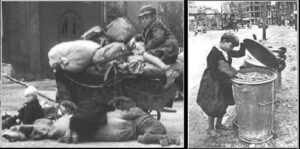 Wars leave unfortunate consequences, one of the biggest being orphaned children. World War II is no exception to that rule. After the surrender of Germany, the nation was basically split into four sections…the American Zone, the Soviet Zone, the British Zone, and the French Zone. It was all part of the denazification process. The term denazification refers to the removal of the physical symbols of the Nazi regime. In 1957 the West German government re-issued World War II Iron Cross medals, among other decorations, without the swastika in the center. That was just one of the ways that the Nazi regime was removed from Germany.
Wars leave unfortunate consequences, one of the biggest being orphaned children. World War II is no exception to that rule. After the surrender of Germany, the nation was basically split into four sections…the American Zone, the Soviet Zone, the British Zone, and the French Zone. It was all part of the denazification process. The term denazification refers to the removal of the physical symbols of the Nazi regime. In 1957 the West German government re-issued World War II Iron Cross medals, among other decorations, without the swastika in the center. That was just one of the ways that the Nazi regime was removed from Germany.
Another way was the Denazified School System and the denazification of the rest of the German government…which was then reassembled without the Nazi symbolism. With the school system effectively out of commission, the children of Berlin had very little or even no structure in their lives at all. These were children whose lives had been shredded by the war, many of whom had been orphaned by the conflict or had lost at least one parent. That lead to an overall lack of adult supervisors. Children, and especially teens and preteens, roamed the streets in packs. The situation was especially difficult for the children who had lost both parents. There weren’t any real orphanages either, and so these children formed their own “families” on the streets…like street gangs. These children were known as German “wolf children” also known as “Wolfskinder,” but the reality was that they were simply the forgotten orphans of World War II.
The schools eventually reopened, but they were often in half-ruined facilities, that were underfunded and understaffed, with some schools reporting student-to-faculty ratios of 89 to 1. That kind of a classroom ratio is far too big to be able to effectively teach the students. And the re-opened schools didn’t really address the issue of these orphaned “wolf children” who were often in hiding whenever authorities were around. These children were most likely afraid of authority, because it was the authorities who got their parents killed in the first place. Many of these children were forced to flee what was then East Prussia to Lithuania at the end of World War II. They felt like the German government had failed them. These children survived hunger, cold, and the loss of their identity, and the German government had long overlooked them, so why would they trust the government now.
No one really knows just how many “wolf children” there were. That number can only be estimated. Some say there were up to 25,000 of them roaming the woods and swamps of East Prussia and Lithuania after 1945. Russians were actually forbidden from taking in these “fascist children.” These children were actually told to go to Lithuania and given the promise that there would be food there. When they arrived, they couldn’t speak the language and they had no papers, so they had no identity…no one could even know their names. Those who were taken in often had every shred of memorabilia from their past stripped from them and tossed in the trash. That was the last part of who they really were. It was the price they would pay for food, safety, and security; and it was a failure of the German government, and the four nations who were in charge of reorganizing Germany. I suppose some would disagree with me on that note, but the reality is plain to see. If these children came across kind locals, the “Vokietukai” or little Germans, in Lithuanian, as they were known, were helped with buckets of soup in front of the doors, giving the children a little nourishment. If the residents were not so kind, they would set their dogs on the children.
While the “Vokietukai” had many struggles in Lithuania, life was still better than the fate that awaited the 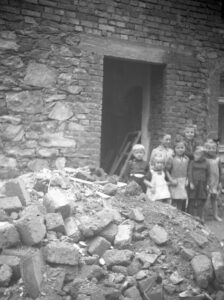
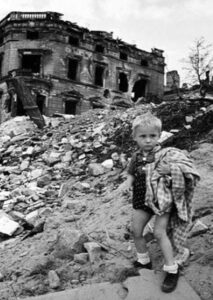 children who were too weak to make it to the Baltic states. There were thousands of these children, and they were sent to Soviet homes run by the military administration. That was the fate of approximately 4,700 German children in 1947, according to historian Ruth Leiserowitz, who has researched the fates of wolf children. Later that year, many of them were sent to the Soviet occupation zone. That zone later became the German Democratic Republic (GDR). Those poor children traveled in freight trains without any straw to sleep on…similar the Holocaust deportation years. These children were young…between 2 and 16 years of age. They arrived in East Germany after four days and four nights…really more dead than alive. There, they were put in orphanages or adopted by avid Communists. They never really escaped Communism…and that is the saddest part of all.
children who were too weak to make it to the Baltic states. There were thousands of these children, and they were sent to Soviet homes run by the military administration. That was the fate of approximately 4,700 German children in 1947, according to historian Ruth Leiserowitz, who has researched the fates of wolf children. Later that year, many of them were sent to the Soviet occupation zone. That zone later became the German Democratic Republic (GDR). Those poor children traveled in freight trains without any straw to sleep on…similar the Holocaust deportation years. These children were young…between 2 and 16 years of age. They arrived in East Germany after four days and four nights…really more dead than alive. There, they were put in orphanages or adopted by avid Communists. They never really escaped Communism…and that is the saddest part of all.
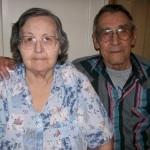
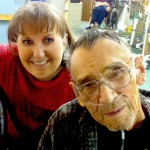 When I think of a loved one passing, my first thought is…how can it be that life continues on for most of us, but for them, life hit a roadblock. It just seems so strange. Knowing that my father-in-law, who was my second dad, has been in Heaven for nine long years. Of course, he wasn’t the first of my parents to leave, that was my own dad, Al Spencer who left us in 2007. Nor would he be the last parent, because that would be my mother-in-law, Joann Schulenberg. Nevertheless, with each passing, comes that strange feeling that something is amiss in the time continuum of life. One life doesn’t go forward, while all the others do.
When I think of a loved one passing, my first thought is…how can it be that life continues on for most of us, but for them, life hit a roadblock. It just seems so strange. Knowing that my father-in-law, who was my second dad, has been in Heaven for nine long years. Of course, he wasn’t the first of my parents to leave, that was my own dad, Al Spencer who left us in 2007. Nor would he be the last parent, because that would be my mother-in-law, Joann Schulenberg. Nevertheless, with each passing, comes that strange feeling that something is amiss in the time continuum of life. One life doesn’t go forward, while all the others do.
My father-in-law was a good man…a gentle man. He loved his family very much and wanted each of them to be ok when he was gone…but he was tired. I knew it the night before he left us, I even asked him if he was quitting me. He told me that he didn’t know. That told me he did know…and he was quitting me. We had fought so hard for his health, and I hated to see him give up, but…he was so tired. He was gone the next day, and I was not surprised when I got the call. And just like that…a phone call told me that he was gone, and once again I felt like another loved on had hit that roadblock in time, and the rest of us would have to go on without him.
My father-in-law worked hard all his life, in several lines of work. He was a man who was loyal and could always be counted on to get the job done. Not every worker can have that said of him. He was honored with years of service awards, and other awards. One of his favorite jobs, and certainly the most fun was when he drove the 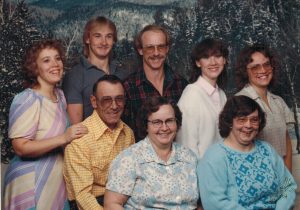
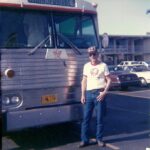 bus for the Casper College Thunderbirds. He got to travel to place in the country that he had never been before…and he was loved by all of them.
bus for the Casper College Thunderbirds. He got to travel to place in the country that he had never been before…and he was loved by all of them.
My father-in-law was such a blessing to me. I couldn’t have asked for anyone better. Having in-laws who are loving, and totally accept you as their own, is the best gift anyone can receive. And my father-in-law was a gift…a wonderful gift, and I will be forever grateful for that gift from God. My father-in-law went to Heaven nine years ago today. We miss him every day. We love you, Dad.
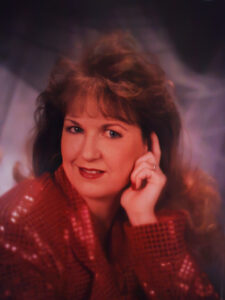
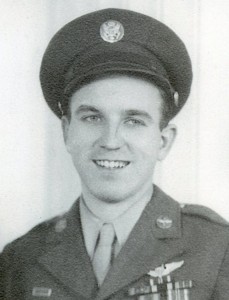 My favorite part of war history, if a person should have a favorite part, would be World War II. It was the war my dad, Allen Spencer fought in, and maybe that is why I am so interested in it and in the B-17 Flying Fortress, from which he fought and returned home. The men and women who fought in World War II are called the Greatest Generation, and maybe because my dad was a part of that, I am partial to that part of history. I find it a bit strange that while the Vietnam Memorial Fund, Inc (VVMF) was incorporated as a non-profit organization to establish a memorial to veterans of the Vietnam War, on April 27, 1979, four years after the Fall of Saigon, but the World War II Memorial didn’t open until April 29, 2004, in Washington DC. Of course, I think it was cool that it opened on my birthday, but it really was a long overdue recognition for the 16 million US men and women who served in the war. The memorial is located on 7.4 acres on the former site of the Rainbow Pool at the National Mall between the Washington Monument and the Lincoln Memorial. The Capitol dome can be seen to the east, and Arlington Cemetery is just across the Potomac River to the west. It really is a beautiful setting and shows the proper honor to these men and women of the Greatest Generation.
My favorite part of war history, if a person should have a favorite part, would be World War II. It was the war my dad, Allen Spencer fought in, and maybe that is why I am so interested in it and in the B-17 Flying Fortress, from which he fought and returned home. The men and women who fought in World War II are called the Greatest Generation, and maybe because my dad was a part of that, I am partial to that part of history. I find it a bit strange that while the Vietnam Memorial Fund, Inc (VVMF) was incorporated as a non-profit organization to establish a memorial to veterans of the Vietnam War, on April 27, 1979, four years after the Fall of Saigon, but the World War II Memorial didn’t open until April 29, 2004, in Washington DC. Of course, I think it was cool that it opened on my birthday, but it really was a long overdue recognition for the 16 million US men and women who served in the war. The memorial is located on 7.4 acres on the former site of the Rainbow Pool at the National Mall between the Washington Monument and the Lincoln Memorial. The Capitol dome can be seen to the east, and Arlington Cemetery is just across the Potomac River to the west. It really is a beautiful setting and shows the proper honor to these men and women of the Greatest Generation.
The 16 million men and women who served in the armed forces of the US are honored at the World War II Memorial, as well as the more than 400,000 who died, and all who supported the war effort from home. The memorial was built using granite and bronze. It features fountains between arches to symbolize hostilities in Europe and the Far East. The arches are bordered by semicircles of pillars, one each for the states, territories, and the District of Columbia. Beyond the pool is a curved wall of 4,000 gold stars, one for every 100 Americans killed in the war. It also features an Announcement Stone that states that the memorial is to honor those  “Americans who took up the struggle during the Second World War and made the sacrifices to perpetuate the gift our forefathers entrusted to us: A nation conceived in liberty and justice.”
“Americans who took up the struggle during the Second World War and made the sacrifices to perpetuate the gift our forefathers entrusted to us: A nation conceived in liberty and justice.”
The project was funded with more than $164 million dollars in private donations, and an additional $16 million donated by the federal government. Former Kansas Senator Bob Dole, who was severely wounded in the war, and actor Tom Hanks were among its most vocal supporters. The really sad part is that only a fraction of the 16 million Americans who actually served in the would ever see it…my dad included. While he was alive in 2004, that was not a trip he got to take before his passing in 2007. Four million World War II veterans were still living at the time the memorial was finally opened, but more than 1,100 dying every day, according to government records. I find that to be so sad.
Roger Durbin of Berkey, Ohio, who served under General George S Patton, inspired the memorial. Durbin was at a fish fry near Toledo in February 1987, when he asked US Representative Marcy Kaptur why there was no memorial on the Mall to honor World War II veterans. It was a question that should have been asked and answered long ago. Nevertheless, Kaptur, an Ohio Democrat, introduced legislation to build one, starting a process that would stumble along through 17 years of legislative, legal, and artistic entanglements. Durbin died of pancreatic cancer in 2000, without ever actually seeing his hard work come to fruition. While he didn’t live to see his project come to life, I and so many other children of World War II veterans and lost loved ones, will be forever thankful to him for finally making sure our loved ones were properly honored. The monument was formally dedicated May 29, 2004, by US President George W Bush, but I am pleased that it actually opened on 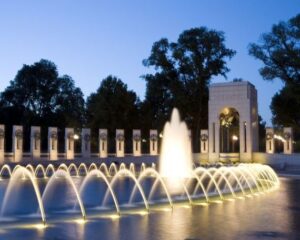
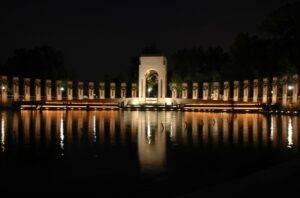 my birthday in 2004. My birthday, because it was just two days after my dad’s birthday, has always been a special time that we shared. Of course, I was due and supposed to arrive on Dad’s birthday, but I’ve always said I was a little stubborn, so I held out. Nevertheless, we usually celebrated our days together, so I feel like his memorial opening on my birthday was really very cool.
my birthday in 2004. My birthday, because it was just two days after my dad’s birthday, has always been a special time that we shared. Of course, I was due and supposed to arrive on Dad’s birthday, but I’ve always said I was a little stubborn, so I held out. Nevertheless, we usually celebrated our days together, so I feel like his memorial opening on my birthday was really very cool.
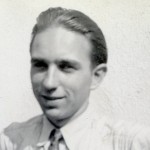
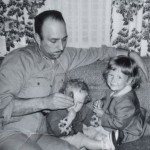 Some men are Boy Dads, which in no way means that they wouldn’t be good with girls. Some men are Girl Dads, which in no way means that they wouldn’t be good with boys. the truth is that any good dad can be a good dad to boys or to girls, but there is one thing that I think my sisters and I would all agree on with our dad, Allen Spencer. While he would have been a great dad to boys, his girls needed him to be our dad. Maybe a girl dad or a boy dad is just blessed with the gift of one or the other, because they have a particular way with one or the other.
Some men are Boy Dads, which in no way means that they wouldn’t be good with girls. Some men are Girl Dads, which in no way means that they wouldn’t be good with boys. the truth is that any good dad can be a good dad to boys or to girls, but there is one thing that I think my sisters and I would all agree on with our dad, Allen Spencer. While he would have been a great dad to boys, his girls needed him to be our dad. Maybe a girl dad or a boy dad is just blessed with the gift of one or the other, because they have a particular way with one or the other.
Our home was filled with so much love and dad understood the needs of girls…like giving up the bathroom quickly so we could get all dolled up. He understood that when camping, the fire needed to be kept going…”to keep the bears away.” There were so many other things that Dad instinctively knew about girls and our girly ways, and he always made us feel loved, special, and safe. We were his princesses, and Dad loved all his 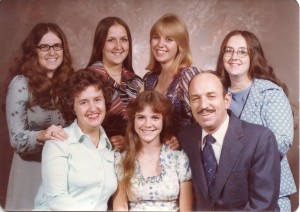 princesses and much as he loved his queen, our mom Collene Spencer. Yes, our dad was definitely a Girl Dad, but it was we, his girls, who were blessed because he was our Girl Dad.
princesses and much as he loved his queen, our mom Collene Spencer. Yes, our dad was definitely a Girl Dad, but it was we, his girls, who were blessed because he was our Girl Dad.
Dad did all the normal “dad things” that all dads do, like working hard every day to support his family, taking us on more vacations that almost any of our classmates got to go on, and I’m not bragging, just stating a fact. Dad loved to travel, and he loved this country; and he wanted his girls to be able to see as much of it as possible, because there is no greater nation on earth, except God’s chosen nation…Israel, and I think he would have loved to take us there too. For our dad, the greatest gift he could give his girls is the gift of faith in Jesus as our Savior. Faith was something he was given as a child, and I remember reading his letters home from World War II, written to his mom, Anna Spencer, in which he and his mother encouraged each other with God’s promises, given to us all in the Bible. Dad was very protective of his mom too. She was another of the women in his life who were blessed to know the love and protective nature that was always our dad, her son.
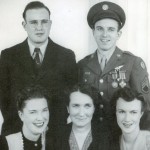
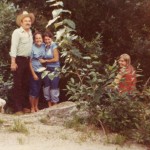
Dad went home to Heaven on December 12, 2007, and we miss him every day. There was so much more to Dad than the things he gave us or the special way we were treated, there was the love that dad gave his girls. Dad may have been blessed to be a Girl Dad, but it was really his girls who were blessed, because he was our dad. Today would have been Dad’s 98th birthday. Happy birthday in Heaven, Dad. Have a great party with Mom and the rest of the family. We can’t wait to see you all again. We love and miss you very much.

